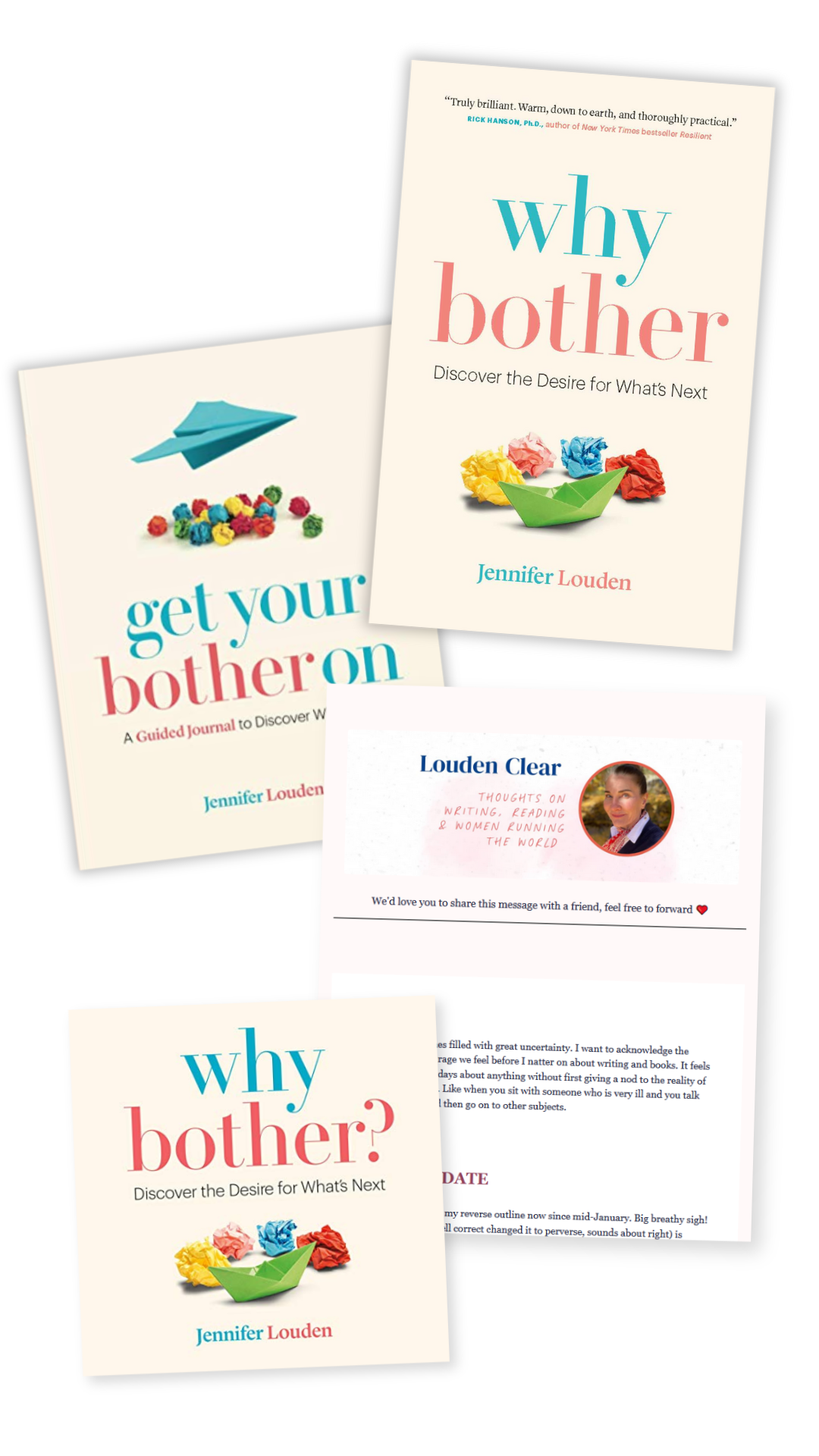
Want to get your bother on starting now?
GET ALL THE GOODIES!
- The first chapter of Why Bother? (read or listen)
- Monthly updates on writing my novel – The glory! The mess! – and a round-up of what I read, watched, and learned about writing.
- Journaling prompts from my guided. journal Get your Bother On
My gift to you because we all need to get our bother on these days!
I’m not one of those creepy people who make it hard to unsubscribe or email you again nine years after you’ve unsubscribed. Giving me your email is like a coffee date, not a marriage proposal.

As a smart, creative woman who longs to make a difference in the world, you deal with more than your fair share of:
Procrastination
Fear of Choosing
Disappointment & Why Bother Thoughts
Imposter Syndrome
Trouble Focusing
Time Anxiety
Trust me when I say that these do NOT have to be your constant companions for your journey! After making my living writing, speaking, and teaching for almost three decades, I know how it feels to deal with seemingly endless periods of creative downturns, blocks, and frustrations.
But after years of study and experimentation, I’ve discovered simple, accessible practices that will help you get out of your own way and FINALLY make progress to that creative and life goals that’ve been calling to you.